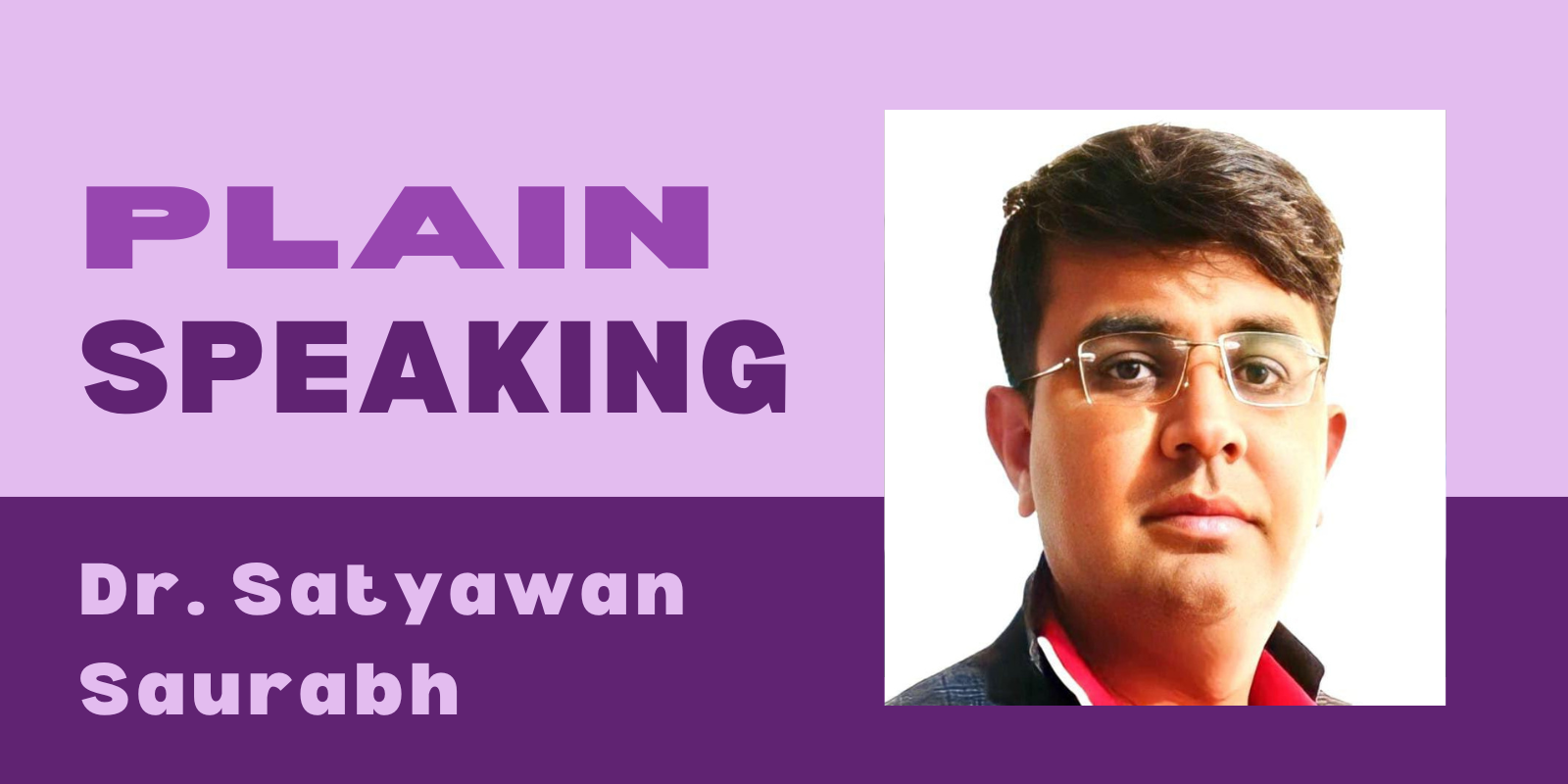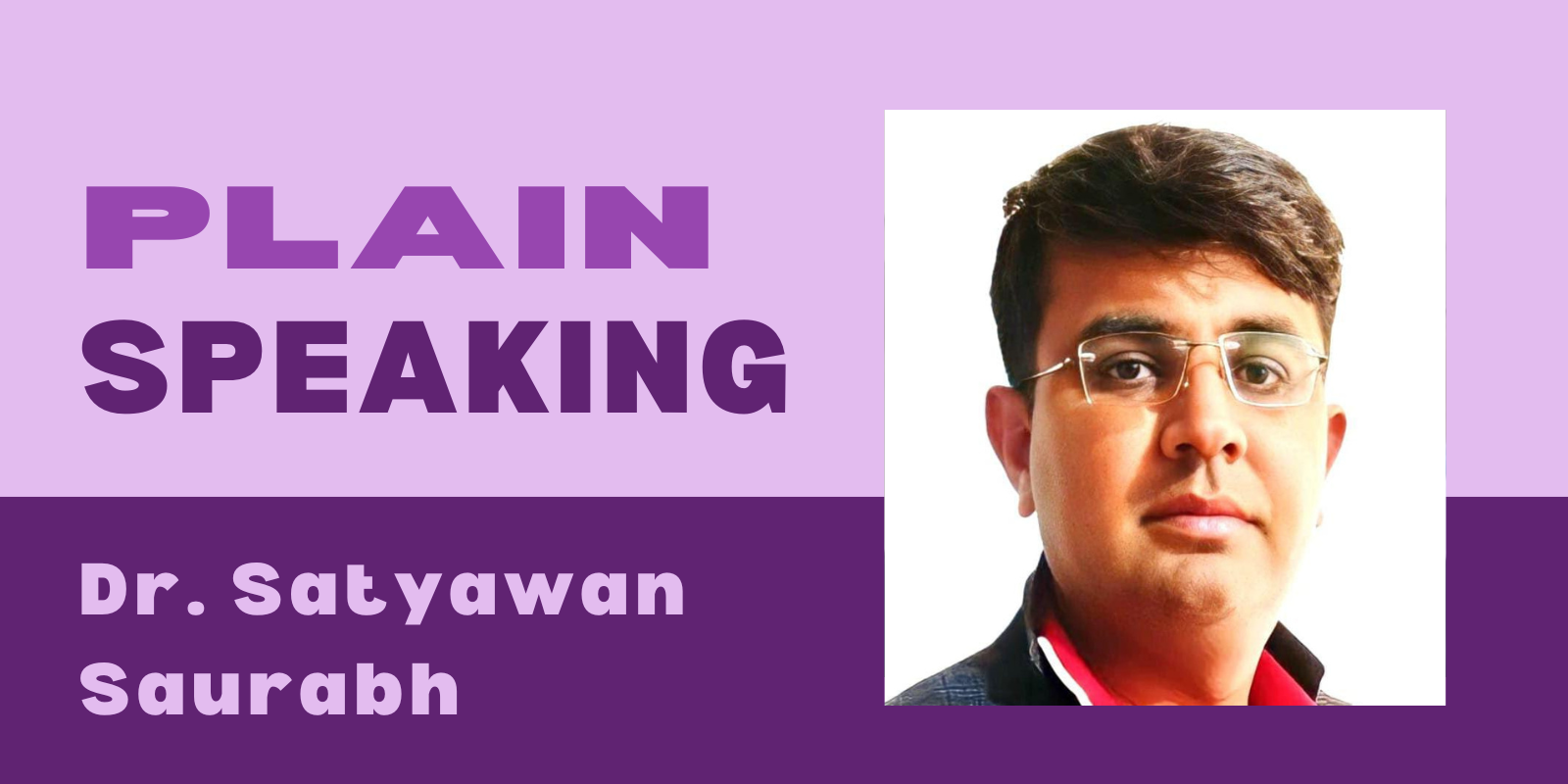The love of leaders and the ignorance of the public
Sometimes Kiran Chaudhary and Shashi Tharoor stand against each other on stage, sometimes the policies of parties are divided in the name of Hindu-Muslim, and in the meantime, the common people suffer. Have we ever thought that these leaders shake hands with each other, even praise each other in programs, but why do we, who are neighbors and relatives, become enemies after listening to their statements? If politics is limited to elections, then peace in the society can be maintained. But when we let the politics of votes dominate our hearts and minds, then hatred grows. The next election of the leaders will come, the next stage will be decorated, but the rift that is created in the hearts of the common people does not heal for years. Now is the time to understand—do not let political fights enter personal relationships. The leaders who call each other ‘traitors’ today will sit together in Parliament and make laws tomorrow, and us? We will still be debating on social media.
The stage of politics is never straight. What is visible in front is often only a glimpse of the truth hidden behind the curtain. A scene in which leaders are seen fighting, dying, and quarreling for the public on the stage, and at the end of the same scene, they hug each other behind the curtain and laugh while sipping tea.
Have you ever wondered? That people who call each other ‘anti-national’ and ‘traitor’ in TV debates drink coffee together after the break? Or that leaders who call each other’s parties ‘enemies of the people’ also go to each other’s houses for dinner as soon as the Parliament session ends?
So, who is the real fool? The leader who fights a battle for show, or we, who take that battle to heart and harbor hatred against our own people?
Acting of enmity, truth of friendship
In politics, enmity is an art, and friendship is a necessity. Despite the sharp tone on TV and poisonous arrows on Twitter, one truth remains: the real purpose of all this is to cheat the public emotionally. Votes are obtained in elections on the basis of ’emotion,’ not logic. And when the public gets excited in the name of religion, caste, sect, and patriotism, only then are the leaders’ moves set.
Be it Kiran Choudhary and Shashi Tharoor or Modi and Mamata, Kejriwal and Rahul—all of them live comfortably in their personal lives by engaging the emotions of their respective sections of the public.

The public: a resource for the leader, an enemy for himself
We are not ashamed to think that we fight with our neighbor for a leader. We break friendships before casting our vote, block each other on WhatsApp, families break up, and there are conflicts in marriages.
Why? Because we feel that ‘our leader’ is saving the country, and ‘your leader’ is selling the country.
The limits of this madness are crossed when you see that the leaders whom you considered as arch enemies are getting photographed together at each other’s sons and daughters’ weddings.
History is witness: The politics of friendship is nothing new.
Not only today, but in the political history of India, there are thousands of such examples where leaders with opposing ideologies have been close friends of each other outside the Parliament.
Pandit Nehru and Shyama Prasad Mukherjee were staunch critics of each other, but never crossed the line of personal respect.
Atal Bihari Vajpayee and Sonia Gandhi used to make sharp comments against each other in Parliament, but cordiality was maintained at a personal level.
Today, this decorum has ended, but the relations between leaders are still cordial, just by keeping the public in confusion.
The game of religion and caste: the cheapest weapon of politics
The politics of our country runs on the trigger of religion and caste. Hindu-Muslim, Dalit-Thakur, Brahmin-backward—a new division is raised in every election.
And us? We pounce on this trap. As soon as a leader says, “Hindus are in danger,” “Muslims have increased,” or “Ram has been insulted, we take out our swords, start tweeting, and forget decorum in debates.
While the leaders know that these issues are only meant to engage the public, the real game is being played elsewhere—private deals, government tenders, transfer postings, and the seat of power.
Media: Factory adding fuel to the fire
The media adds fuel to the fire lit by politicians. Debates on news channels are scripted. Every night, there is a fixed agenda, a fixed enemy, and a fixed standard of “nationalism.”
The anchor shouts, “Are you a patriot or a traitor?”
The public gets divided: “I am a Hindu with Modi; you are a Muslim with Rahul.”
And in this debate, we transform from humans into machines—machines for spreading hatred.
Social media: Arena of blind followers and liberal politics
Social media has made the common man a ‘digital warrior.’ Now everyone attacks others on Facebook, Twitter, and Instagram, carrying the flag of one ideology.
Anyone who is a supporter of BJP attributes every question to the ‘Tukde-Tukde Gang.’
Those who are in the opposition consider every government decision an example of ‘dictatorship.’
In this fight, logic has died, and only emotional blind devotion remains.
Why silence on the real issues?
Even today, crores of people in the country are deprived of clean water, quality education, employment, and health facilities.
But no leader speaks on these issues because these issues do not arouse emotions and do not get votes.
The hunger of the poor, the suicide of the farmer, the helplessness of the unemployed, the suicide of the student—politics is silent on all these.
We are also silent because we pay attention to the “trending” issue that our leaders and media serve.
Are we democratic?
Democracy is not just about voting. It is about thinking, asking questions, and respecting dissent. But today, as soon as someone raises questions against the government or a leader, he is labeled a “traitor.”
Criticizing leaders has now become ‘anti-national.’ Is this democracy? Or an emotional dictatorship?
What to do now? What is the solution?
1. Understand politics as politics; do not make it a symbol of religion or caste.
2. Get out of the agenda of media and leaders, think for yourself, read, and question.
3. Maintain dialogue—Don’t let political differences interfere with personal relationships.
4. Opposition is necessary in democracy—give it space, don’t abuse it.
5. Don’t make yourself a pawn in the show-off battles of politicians.
Finally, a simple question: Are you a real leader or a slave?
Before every election, think about who you are voting for—the leader who makes you fight on the streets, in mosques and temples, or the leader who talks about hospitals, schools, water, and employment?
If you are also living with the same anger, the same hatred that the leaders sowed, then sorry—you are not free. You are a spectator of a show where the leaders are the heroes, and you are the joker.






